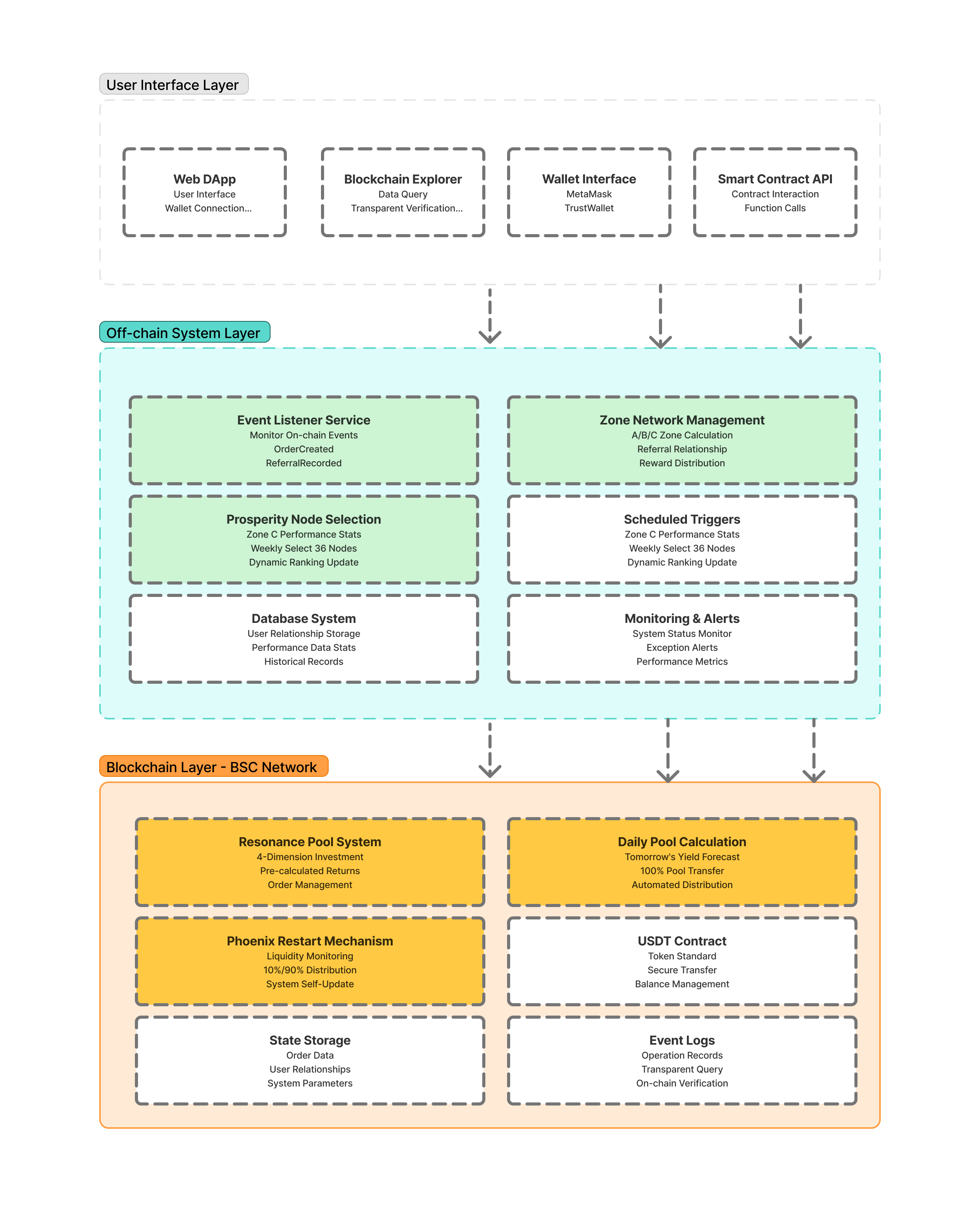7.1 Architecture Design and Philosophy
The core technical foundation of Utopia is a precisely designed smart contract system, which is not merely a collection of code, but a technical philosophical practice that integrates information, value, and consensus into one entity. I call this design philosophy "information-driven," meaning the system drives value creation and distribution through precise collection, processing, and flow of information. Smart contracts ensure that all value exchanges and rule executions occur openly and transparently on the blockchain, allowing participants to achieve secure value flow without relying on centralized institutions.
Minimalist Decentralized Architecture
Utopia adopts the minimalist design philosophy of "deploy once, never upgrade," integrating all core functions into a single smart contract to achieve completely decentralized autonomous operation.

The Revolutionary Philosophy of "Deploy Once, Never Upgrade"
Utopia adopts the most radical design philosophy in the blockchain field - "deploy once, never upgrade." This design philosophy stems from a deep understanding of the essence of decentralization: true decentralization is not only technical decentralization, but also governance decentralization.
Deep Meaning of the Design Philosophy
- Code is Law: Once deployed, the rules of the smart contract become immutable law
- Algorithmic Governance: All decisions are executed by preset algorithms, eliminating the possibility of human intervention
- Eternal Stability: The eternal nature of system rules provides participants with the highest level of certainty guarantees
- Trust Minimization: Participants need not trust any person or institution, only the verified code
The Integrated Wisdom of a Single Contract
Utopia chose a single smart contract design, integrating all core functions into one contract.
Technical advantages of a single contract:
- Simplified Interaction: All operations are completed within one contract, avoiding the complexity of cross-contract calls
- Risk Reduction: Reducing attack surface, lowering the possibility of being attacked
- Improved Efficiency: Avoiding Gas consumption from multiple contract calls
- Enhanced Reliability: Single contract logic is clearer, easier to audit and verify
